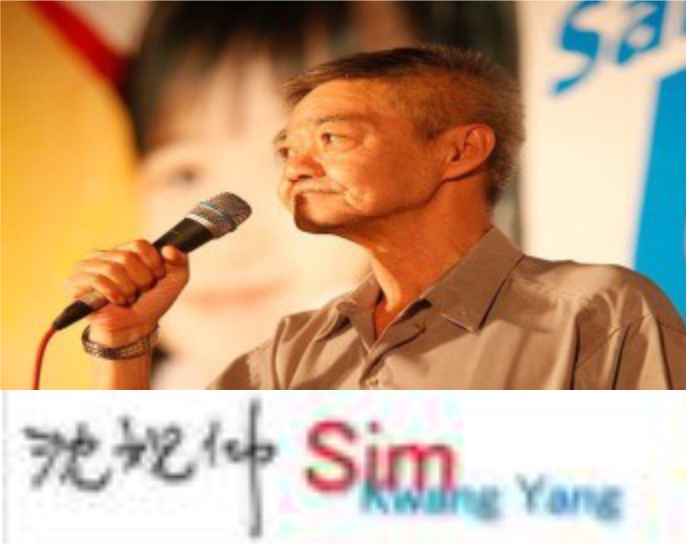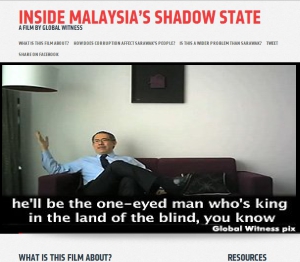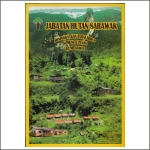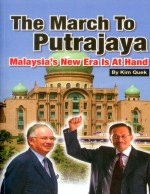 Opposition parties say they expect a much harder challenge in the next general election amid Barisan Nasional’s (BN) growing influence on social media, a platform they used to dominate.
Opposition parties say they expect a much harder challenge in the next general election amid Barisan Nasional’s (BN) growing influence on social media, a platform they used to dominate.
Some say they have started using big data analytics after the 13th general election in 2013, gathering large amounts of personal information on voters from basic data to one’s political inclination in a bid to profile the electorate.
Like BN, PAS and Pakatan Harapan’s main social media platforms are Facebook and WhatsApp, used in both rural and urban constituencies due to Malaysia’s high internet penetration rate of 71 per cent as of 2015.
Although the Opposition managed to deny BN its two-thirds majority since Election 2008, the propaganda battle for the 14th general elections due by next year appears to be anyone’s game with the ruling coalition’s entry into the social media scene.
Malay Mail Online interviewed Pakatan Harapan parties ― PKR, DAP, Parti Amanah Negara (Amanah), and Parti Pribumi Bersatu Malaysia (PPBM) ― as well as PAS to find out how they are using big data analytics and fighting off BN on social media.
PKR
Invoke, a big data analytics outfit started by PKR vice-president Rafizi Ramli last August, is working with 50 candidates from mostly PKR and Amanah for the next general election.
Rafizi said Invoke gathers “millions of data” on voters from basic details like age, residential post code, gender, race and religion, to their political leaning, whether their votes are transferable between Opposition parties, as well as their stand on issues like Shariah law. Invoke also plans to collect socioeconomic data on the electorate like one’s job, income, education, spending habits, and even what kind of house one lives in.
The point is to identify swing voters and to focus campaigning on them, instead of on those who will definitely vote for BN or the “converted” who are already in Pakatan’s camp. Big data analytics also enable candidates to identify issues that have traction in their constituency.
“We predict how people will vote,” Rafizi told Malay Mail Online. “That allows us to tell which seats are winnable and which are not.”
Invoke also gets pro bono help from Andrew Claster, the deputy chief analytics officer for former US President Barack Obama’s 2012 reelection campaign.
“He comes every two to three months,” said Rafizi. “But we run things mostly on our own.”
Rafizi said he believed that the Opposition was still leading on social media with better traction among “genuine” users, even though BN might technically have more mentions with the use of cybertroopers.
“There is no substitute for honesty, credibility and veracity of your information,” he said. “My so-called propaganda is actual news and actual issues.”
He also said the number of Facebook followers did not necessarily equate to virality, as one’s “reach” could be small if one was inactive despite having a large following.
“I think in terms of virality on social media, on Facebook, mine is still quite far ahead of others, which makes sense because we do put a lot of effort in terms of content,” said Rafizi, whose Facebook page has about 594,000 likes at the time of writing.
He said his Facebook posts on issues like the Goods and Services Tax (GST) averaged a 500,000 “reach” (the number of people who have seen the post) without paying to “boost” them, or to expand their reach, while posts on the Mass Rapid Transit and East Coast Rail Line averaged a reach of one million without boosting.
Rafizi noted that Malaysians spend about four hours a day on social media and said Facebook was the most effective way of reaching out even to rural voters, calling “ceramah” in villages a waste of time as party members were the ones attending such events most of the time.
“What we need to get through are people who will not leave the comfort of their bedroom or living room, or people who want to know more but couldn’t be bothered,” said Rafizi. “There’s only one way to get through them ― it’s through Facebook.”
The Pakatan leadership also received pro bono training from American political advertising agency The Strategy Group Company last month that was organised by the International Republican Institute (IRI).
“IRI as well as NDI (National Democratic Institute for International Affairs) under the National Endowment for Democracy (NED) runs trainings for political parties across the political spectrum in Malaysia,” PKR vice-president Nurul Izzah Anwar told Malay Mail Online.
NED is a US-based nonprofit that seeks to strengthen democratic institutions around the world.
“The latest session conducted by Brian Berry was organised by IRI, pro bono as we had asked for some advice on communication; specifically as a united coalition,” said Nurul Izzah, referring to The Strategy Group Company chief creative officer.
PAS
PAS vice-president Datuk Iskandar Samad said the Islamist party started engaging companies and groups, as well as local universities, since Election 2013 to perform big data analytics.
He said PAS paid between RM30,000 and RM40,000 to data analytics firms to look at all PAS constituencies in Selangor (five parliament and 20 state seats).
“They find out what is the sentiment on the ground towards PAS and other parties,” Iskandar told Malay Mail Online.
Iskandar, whose party mainly campaigns in the east coast, said rural voters use social media just like in the cities. Facebook and WhatsApp are the party’s primary communications platforms.
“It’s a form of communication even in the ‘kampung’ because everyone has got their smartphone and access is not a problem,” said Iskandar. “Most of the ‘kampung’ are urbanised already; all the facilities are there, the thinking is there, no problem, the thinking is the same.”
Iskandar said consultants approached PAS last year, offering a programme that cost about RM50,000 which could track one’s influence on social media and if people were saying positive or negative things about that person.
“They’re cashing out on election and flogging out their programme to other parties as well,” he said, but declined to say if PAS had purchased it.
Iskandar, who is a Selangor state executive councillor, said PAS hires full-time staff to manage social media, with leaders having their own teams, as well as teams at the constituency and state level. Each team comprises two to three full-time social media staff.
“It’s very big,” said Iskandar. “My office here, there’s somebody in charge. My pejabat DUN also, state level also got, so it’s really big. You cannot do it part-time anymore. It’s got to be somebody full-time.”
When asked about the cost of social media campaigning, Iskandar said: “Money is not a problem. PAS members are very willing to part with their money to give to the party.”
The Selangor PAS commissioner added that PAS has plenty of WhatsApp groups in the community that include fence sitters and even people from other parties, as well as groups on politics or football, or residents’ associations.
“Let’s say if I’m in a ‘bola’ group or ‘persatuan penduduk’, just being there myself is an advertisement to the party,” he said.
PAS deputy president Datuk Tuan Ibrahim Tuan Man said BN has managed to penetrate the Opposition’s fortress in social media since Election 2008 as the Opposition frequently “trains their guns on each other”.
“There are now BN agents tasked with quickly answering allegations raised by the Opposition. The publicity landscape for all parties is currently almost equal,” Tuan Ibrahim told Malay Mail Online.
“What we see on Facebook and Twitter actually doesn’t reflect reality. No one can get the true picture because what’s shown on Facebook and Twitter to us is merely based on what we choose and like,” he added.
DAP
DAP publicity chief Tony Pua denied MCA’s and Gerakan’s allegations that his party hired political consultants, whether local or foreign.
“We do study global campaigning styles and adopt best practices,” Pua told Malay Mail Online.
“We don’t have money to hire professional data analytics companies so we try to do in-house, but with limitations i.e., we can only do basic analytics,” he added.
Pua said the party has received unsolicited quotes from political and data analytics consultants, but it did not intend to engage their services for the upcoming general elections as they were beyond the DAP’s spending abilities.
He added that the DAP occasionally hired survey companies to conduct surveys, but only in some marginal seats as each survey costs up to RM100,000.
Steven Sim, DAP’s political education director in Penang, said he has observed a rise in astroturfing Facebook pages and more professional BN cybertroopers since last year.
The astroturfing pages, he said, have huge followings as they appeared to be politically neutral on the surface with “patriotic-sounding, fun-sounding names”, posting about food or places. But these pages would occasionally promote BN and attack the Opposition.
“The next election, 2018, is going to be a huge challenge for the Opposition because the government has come full force on social media,” Sim told Malay Mail Online.
Sim said even though the DAP was the ruling party in Penang, it maintained separate finances from the state government and hence, its party resources “cannot be compared” to BN.
The Bukit Mertajam MP also said he has observed a “proliferation” of professional PR services used at the state level and even by individual candidates, moving beyond the controversial federal government’s RM77 million contract with international PR firm Apco for its services from July 2009 to June 2010.
“More and more, we’re seeing a movement towards US sort of election,” said Sim.
He added that political consultants were now more affordable, charging between a few hundred thousand and RM1 million for a campaign, but stressed that it was still too expensive for the DAP. Their services, he said, ranged from data analytics to running a campaign.
Sim claimed that some candidates in the 2016 Sarawak state election, BN component parties and a BN state government had engaged PR consultants.
The lawmaker expressed concern about the use of political consultants here, noting that they were not regulated in Malaysia unlike in the US.
“Whose message is it when you look at a campaign poster? Is it the stand of the party, the stand of the individual, or is it some consumer psychological strategy cooked up by professional PR consultants to attract voters into giving up their votes?” Sim said.
A Taiwanese political consultant and an international media intelligence firm told Malay Mail Online that they are providing services for Malaysian parties and candidates for the 14th general elections, with the former saying that he is working with more than 100 candidates in parliamentary seats.
Amanah
Amanah communications director Khalid Samad said three to four companies are providing big data analytics in five to 10 parliamentary seats for his party pro bono.
“They’ll capture all the issues debated on social media and identify what the concerns are, the opinions, what are the issues that are of greatest concern to the voters within that constituency,” Khalid told Malay Mail Online.
He added that some companies also share with Amanah the “salient points” of voter surveys even if they may be commissioned by BN.
The Shah Alam MP accused BN of trying to discredit social media as a source of news by posting false information, saying that fake Amanah Facebook accounts have been opened and quote posters falsely attributed to party leaders.
“It’s a campaign of misinformation,” said Khalid.
The fledgling party that is less than two years’ old relies primarily on Facebook and WhatsApp to communicate with voters, with Khalid saying that WhatsApp groups would be formed for the local surau, parent-teachers’ association, and other neighbourhood groups.
PPBM
Contrary to Umno and PAS, PPBM supreme council member Akhramsyah Sanusi said social media was not the main communications platform in rural areas.
“We cannot rely on social media,” Akhramsyah told Malay Mail Online.
He said many senior citizens in rural areas still did not have smartphones, pointing out that in 2008, there were many viral SMSes but they have ceased now with the advent of WhatsApp.
“That generation doesn’t have WhatsApp and even if they have WhatsApp, it’s usually family groups. People in family groups tend to be very upset if people start pushing too many political stuff,” said Akhramsyah.
Akhramsyah said big data has been a growing element in elections since 2008, but noted that the data then was “nonsense” and the data now was sharper.
When asked if PPBM used data analytics, he said: “We can’t ignore it.”
He said, however, that the main battlefield remained offline, even as the fledgling party has been campaigning in Felda settlements in the rural heartland.
Akhramsyah also said social media analytics was subject to cultural bias, noting that on Star Wars, for example, Gen Y likes Darth Vader while Gen X likes Han Solo, “but will Gen Y vote for Darth Vader during elections? They won’t necessarily.”
“If social media was a good measure, we would have a kitten for president.”
Source : BOO SU-LYN @ Malay Mail Online






















All right thinking and concern Malaysians who are fed up about the situations of the current political system that had led our country down the gutter should support INVOKE and IMPIAN MALAYSIA.
Comment by Awaken Dayak — April 18, 2017 @ 6:13 PM |
This time money cannot buy support easily ….. Advantage Opposition
Comment by tigeryk — April 13, 2017 @ 6:42 PM |
As of now the opposition has yet to win the confidence, trust or the hearts and minds of the voters to win G14.. Yes it is undisputed that more and more voters are unhappy with PM Najib in particular and BN generally for all kinds of reasons but questions and doubts remain in the voters mind about the opposition alliance. For Najib and the BN, between now until when the G14 is held, they will be using the media to hightlight, repeat over and over the black propaganda to give or create the perception that the opposition are disunited, fighting among or between themselves so how can voters trust them and how can they win the coming G14 to form the next govt or replace BN. The BN will also pick up and create issues in Selangor and Penang to also create the perception that a Pakatan Harapan govt will result in a lot of problems for the people. Additionally, BN will split the votes of the opposition by indirectly supporting “other opposition” parties to ensure at least a 3 corner fight.
Comment by Greg — April 12, 2017 @ 11:22 AM |